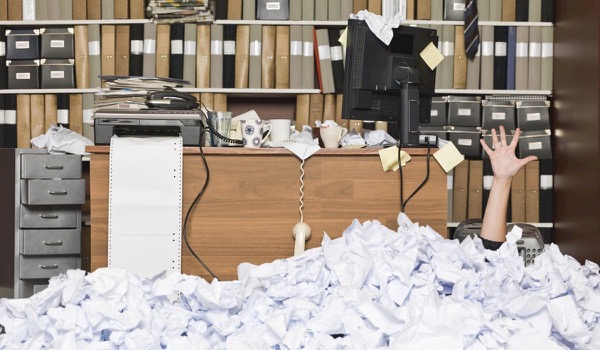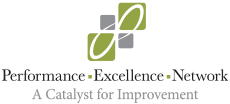
Overwork, Underperform: Why More Hours Leads to Less Productivity — PEN Dec 2018
December 18, 2018
People are overworked. Maybe it’s because we reset after the last recession and are all asked to do more with less. Maybe it’s because 10,000 Baby Boomers are retiring EVERY Day, forcing all of us to do more with less. Maybe it’s because wages really haven’t kept up with inflation the last 30-40 years, forcing all of us to work harder just to stay even. Maybe it’s because technology – with all of its positive impact on accessibility and productivity – has an ugly side effect in our collective inability to shut it off, disconnect, and recharge. Whatever the causes, the impact on workers is mounting…
According to a recent Harvard Business Review article by Sarah Green Carmichael, there is a large body of research that suggests that – regardless of our reasons for working long hours – overwork does NOT help us. Consider this:
- Numerous studies by Marianna Virtanen of the Finnish Institute of Occupational Health indicate that overwork and the resulting stress can lead to all sorts of health problems, including impaired sleep, depression, heavy drinking, diabetes, impaired memory, and heart disease. As the HBR article indicates, not only are these bad on individuals’ health, they negatively impact organizational outcomes as well, such as absenteeism, health insurance costs, productivity, and turnover.
- In a study of consultants by Erin Reid, a professor at Boston University’s School of Business, managers could not tell the difference between employees who actually worked 80 hours a week and those who just pretended to. This seems to indicate, to me at least, that working harder does not necessarily mean working smarter. Or at least not working better.
- According to a separate Dec 2014 HBR article, if you’re in management or any other number of white-collar, office-type jobs that require judgment, interpersonal communication, or managing your own emotional intelligence, overworking causes additional stress, exhaustion, and reduces your effectiveness even more.
- Finally, even if you enjoy your work and the long hours are self-induced, a 2006 study shows that the fatigue still takes its toll: only 1-3% of the population can sleep 5-6 hours a night without any impact on performance. For the 97-99% of the rest of us, that impact manifests itself in more errors, mistakes, work accidents, along with the less measurable but definite negative impact on judgment and decision making.
All of this is to say that overworking eventually results in diminishing returns. And if the situation continues over time, as Carmichael says: “you’ll progressively work more stupidly on tasks that are increasingly meaningless,” which in turn causes you to have to work longer to correct your mistakes and add value. And the spiral continues.

So why do we continue to (perhaps literally) work ourselves to death? Carmichael suggests it could be because of ignorance (we just don’t know the impact that overworking has on our health and our overall performance), because of skepticism (that only happens to OTHER people; I can handle it), and/or because of something more deeply rooted – a combination of economic incentives, authority figures, and deep-seated psychological needs.
So if you lead other workers, it is pretty critical for you to create an environment that considers your employees’ health, well-being, and overall performance:
- Don’t let them work too hard or too long over long periods of time. Occasional “crunch periods” are ok, such as if the organization is responding to crisis, a major deadline, or something that is short-term and justifiable. But organizations should avoid the chronic long periods of overwork for their workforce. To accomplish this, some of it is cultural (setting expectations that prevent overwork), but some of it is structural (leaders may have to adjust staffing levels, create different work shifts or schedules, or change incentives and reward structures, for example).
- Encourage – maybe demand – that your people to take their earned time off. Too many Americans are not using their vacation and paid-time-off (PTO). In fact, CNBC a couple of years ago reported that unused PTO had reached a 40-year high: Americans are leaving about 23% of their PTO on the table. That’s 5 days per employee (or 169 million unused days for the country, about $50 billion in lost benefits). The Wall Street Journal reports the number is closer to $225 billion of unused vacation. Either way, it’s a significant liability for organizations and is taking a significant toll on American workers’ productivity. According to Joe Robinson, author of Don’t Miss Your Life: “Vacations have been shown to increase on-the-job performance as much as 40% when you return. So having rested employees is really critical for business.”
- Set cultural expectations that encourage “down time.” As a manager, think twice about sending that late night email to your staff, as it encourages them to “check in” with the office during times they should be with family, friends, or doing other non-work related things. Of course, some projects – and some jobs – require employees to check-in at different times or work from home. But for those that don’t, avoid setting a cultural expectation that work is 24-7-365.
- Encourage your people to take breaks during the workday, if the job allows. Research shows that taking regular breaks during the workday can boost productivity and creativity. Dr. Danny Penman, author of Mindfulness: A Practical Guide to Finding Peace in a Frantic World, says: “Breaks give your mind space to digest information. It’s very important to daydream, to let your mind run free at the deepest level. That’s the source of creativity – taking disparate ideas from different disciplines and putting them together.” So take a lunch break, stare into space for a few minutes, or just take a walk to recharge.
- Create a work environment that’s fun. Yeah, work can be fun! Make the work environment comfortable; have casual Friday’s; sponsor a game, a picnic, or something truly enjoyable for your team; have a bring-your-dog-to-work day; do anything (that your employees agree) creates a fun, enjoyable place to work.

So as the calendar year winds down, and people enter what – for most – is some much-needed “downtime” during the holidays, reflect on your own work habits and consider how you can “pace yourself” to maximize productivity and well-being. Maybe set a New Year’s Resolution for yourself – and your team – to find more work-life balance. And, if you’re a leader, really work to create an environment that optimizes your team’s well-being, health, and productivity in 2019. Finally, for heaven’s sake, take that well-earned vacation – even if it’s just a long weekend. Refresh, recharge and get ready to tackle work in January. Remember, it’s better to take vacation days now to avoid having to take sick days later!
What other insights do you have regarding overwork, personal productivity, and leaders’ role in creating environment that promotes worker health, well-being, satisfaction, and high performance? Participate in a discussion on this topic: visit our LinkedIn group to post a comment.
Never stop improving!
Brian S. Lassiter
President, Performance Excellence Network
www.performanceexcellencenetwork.org
Catalyst for Success Since 1987!
Photo credit eventplanner.net, flexjobs.com
[this article modified from an original post August 2015]
